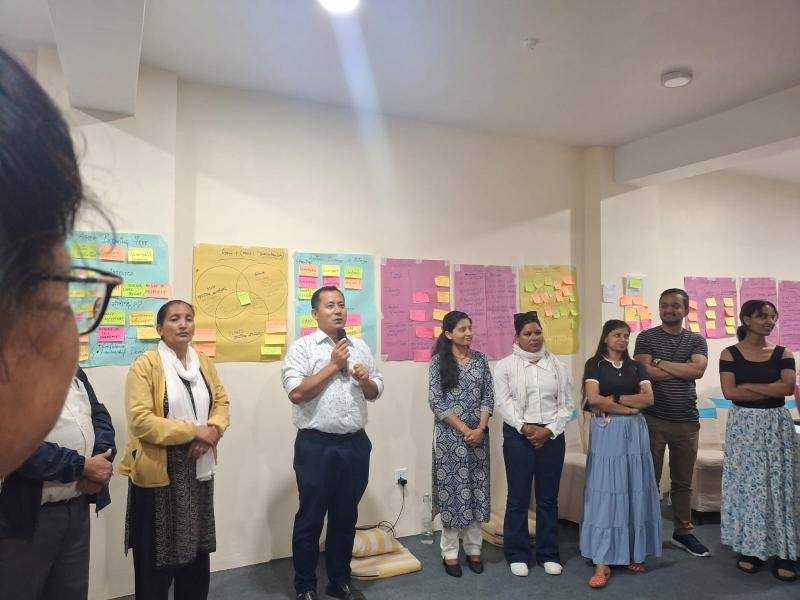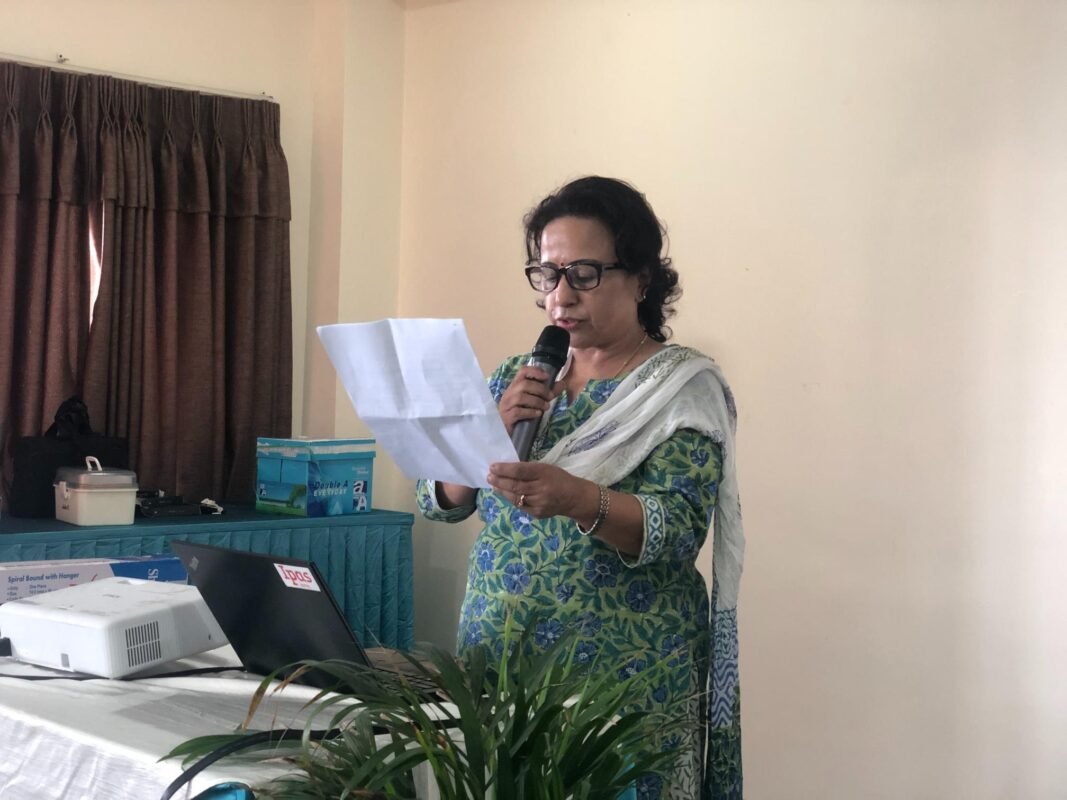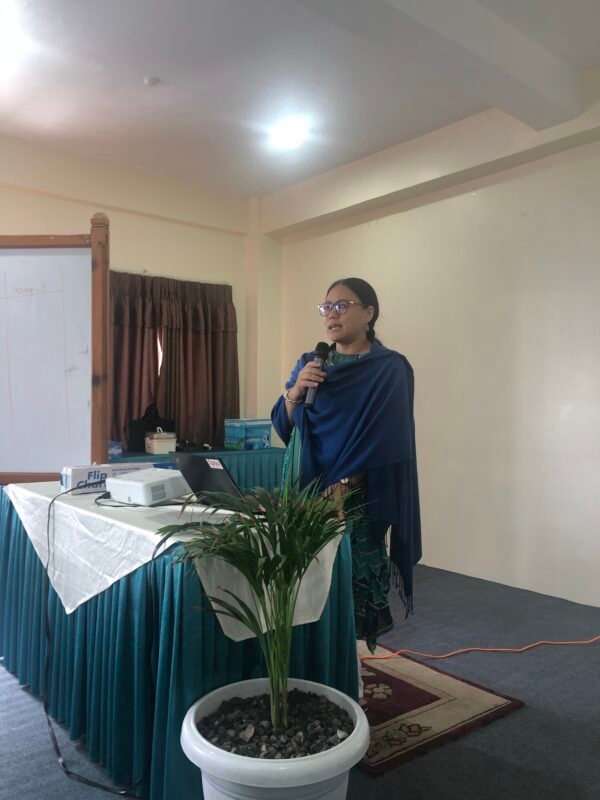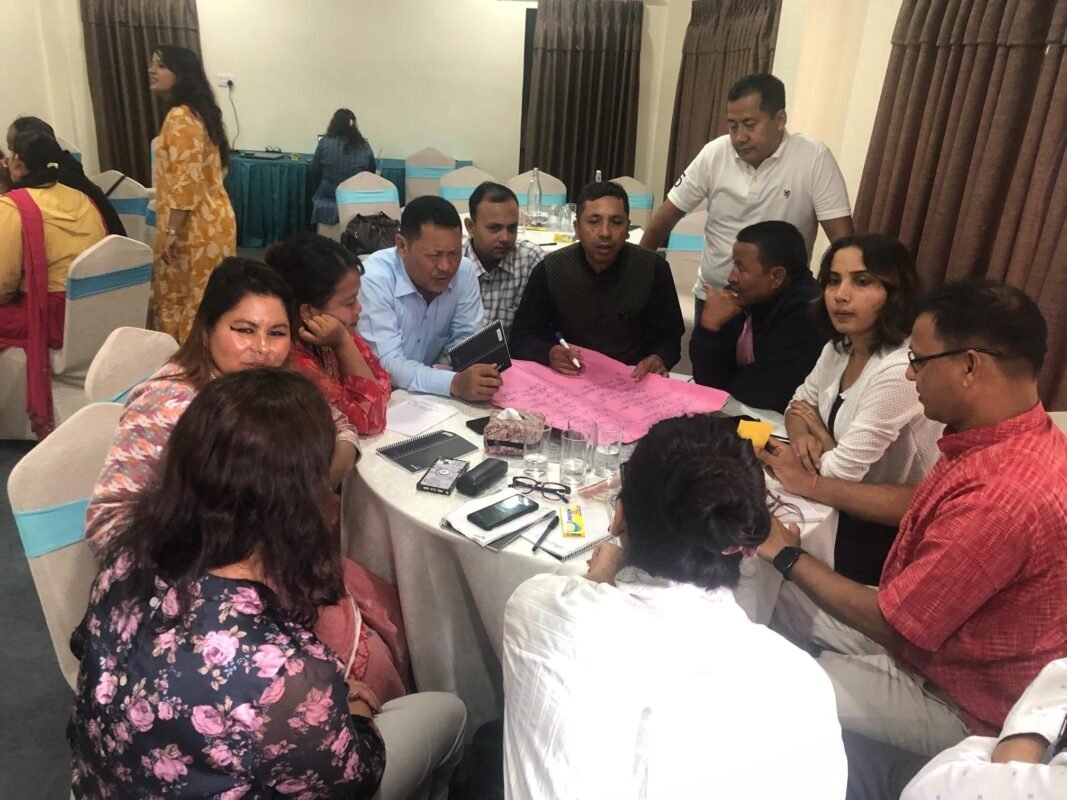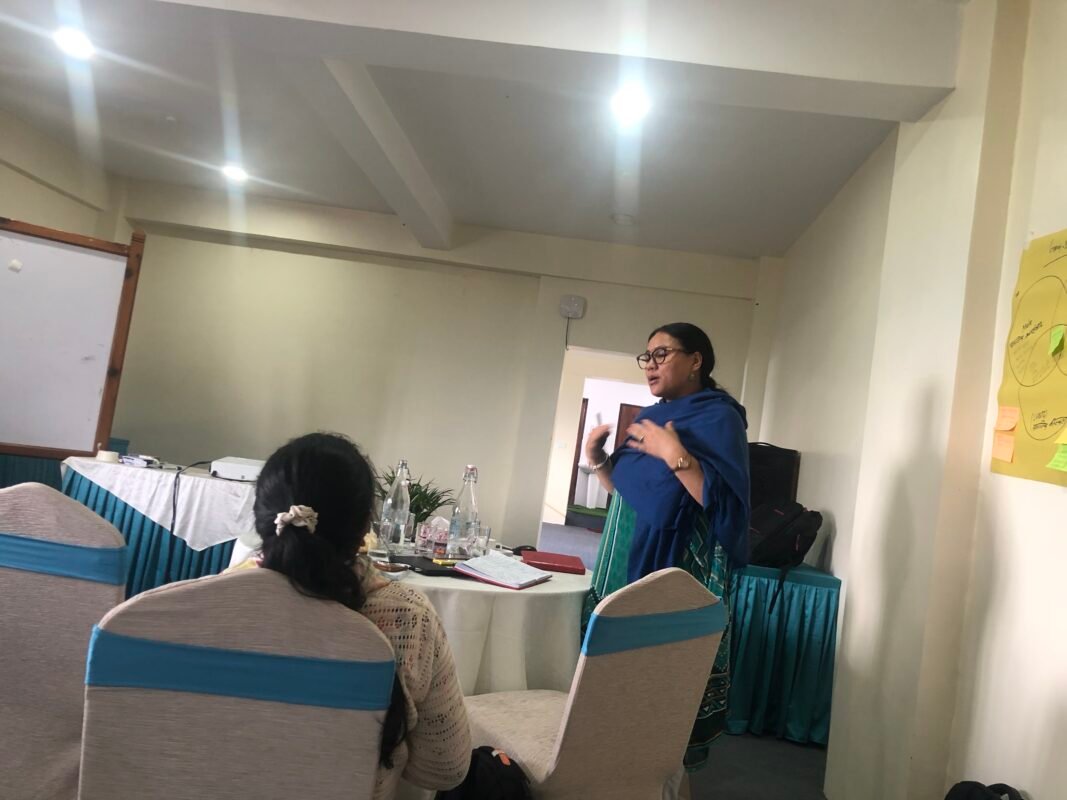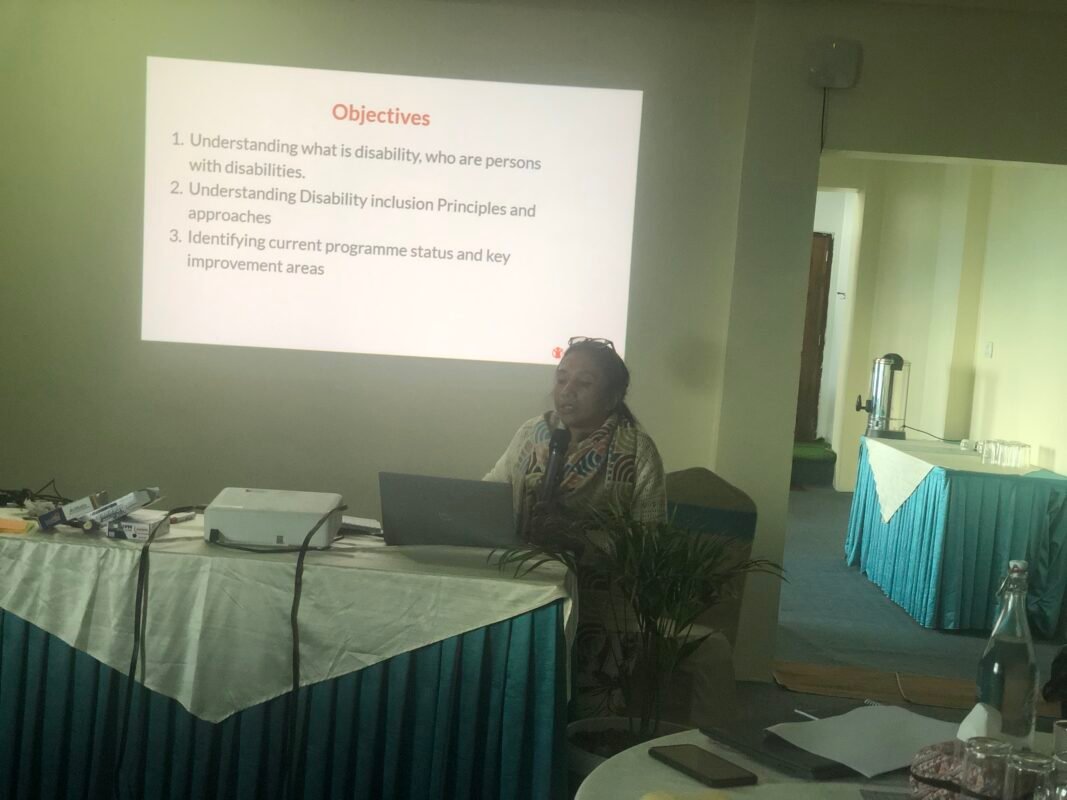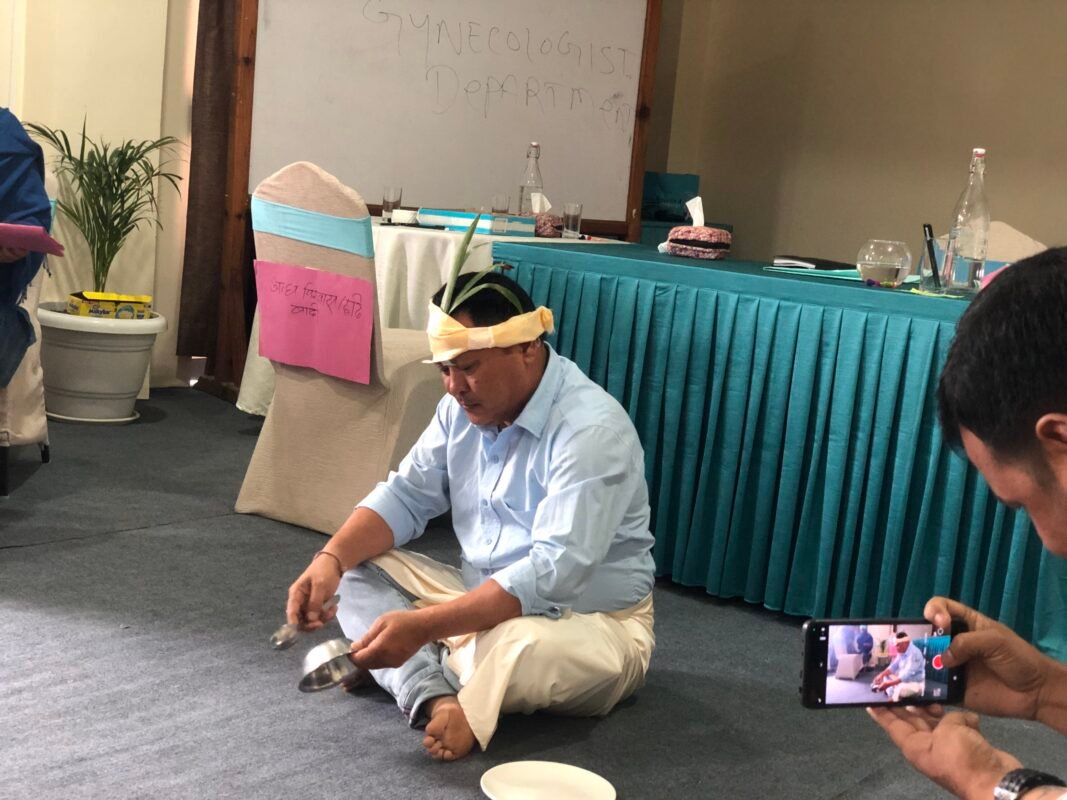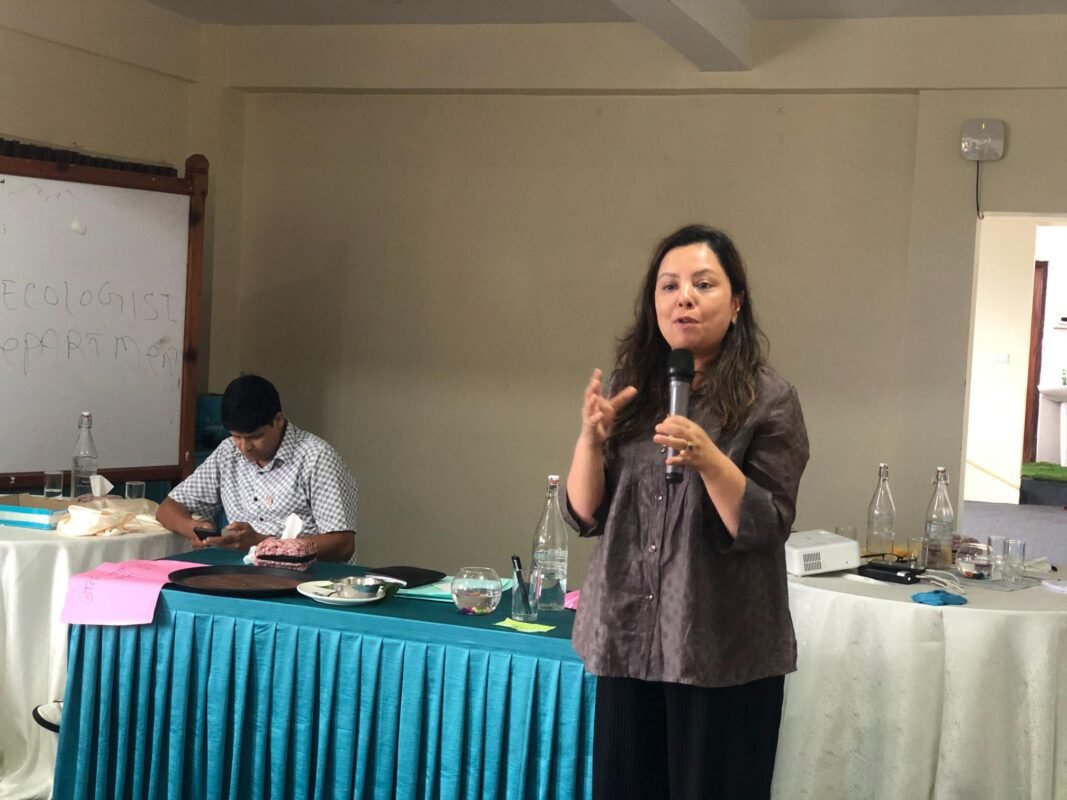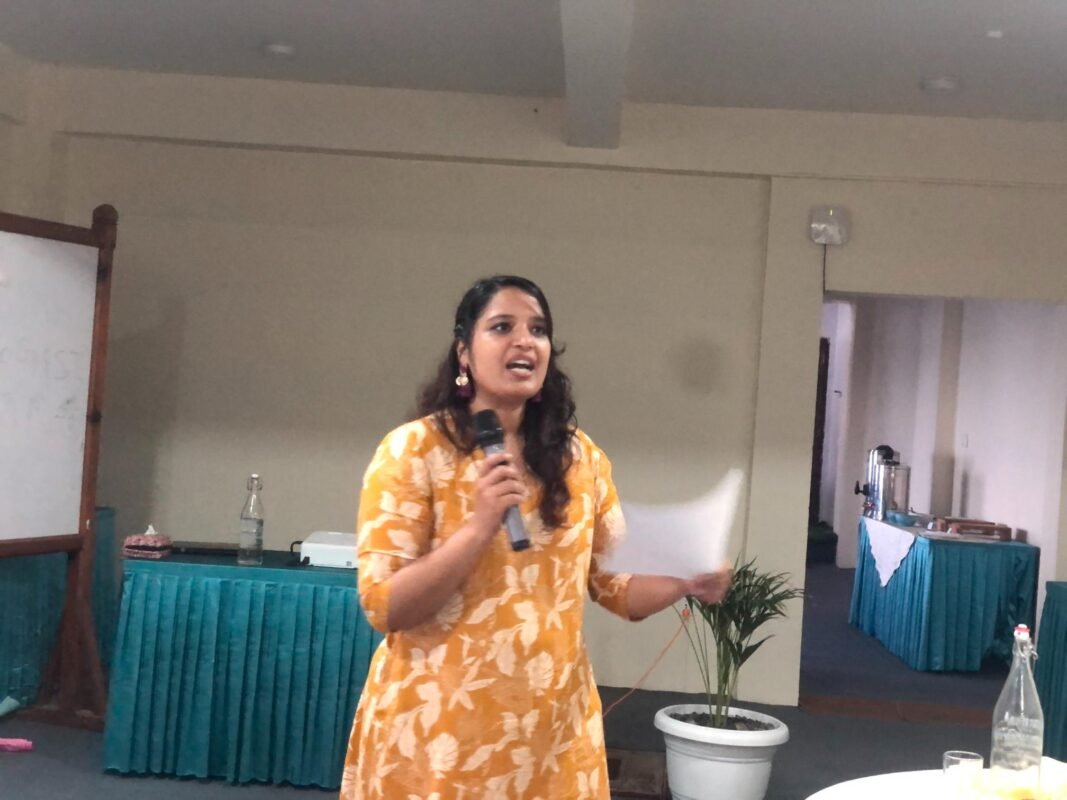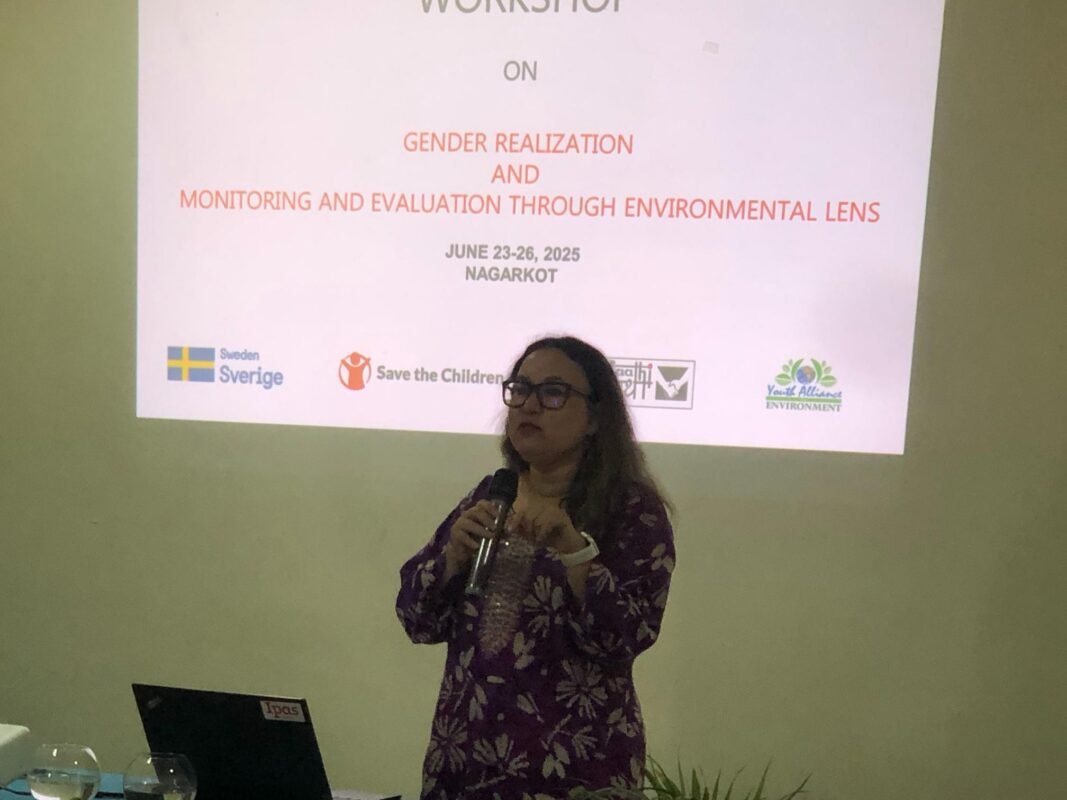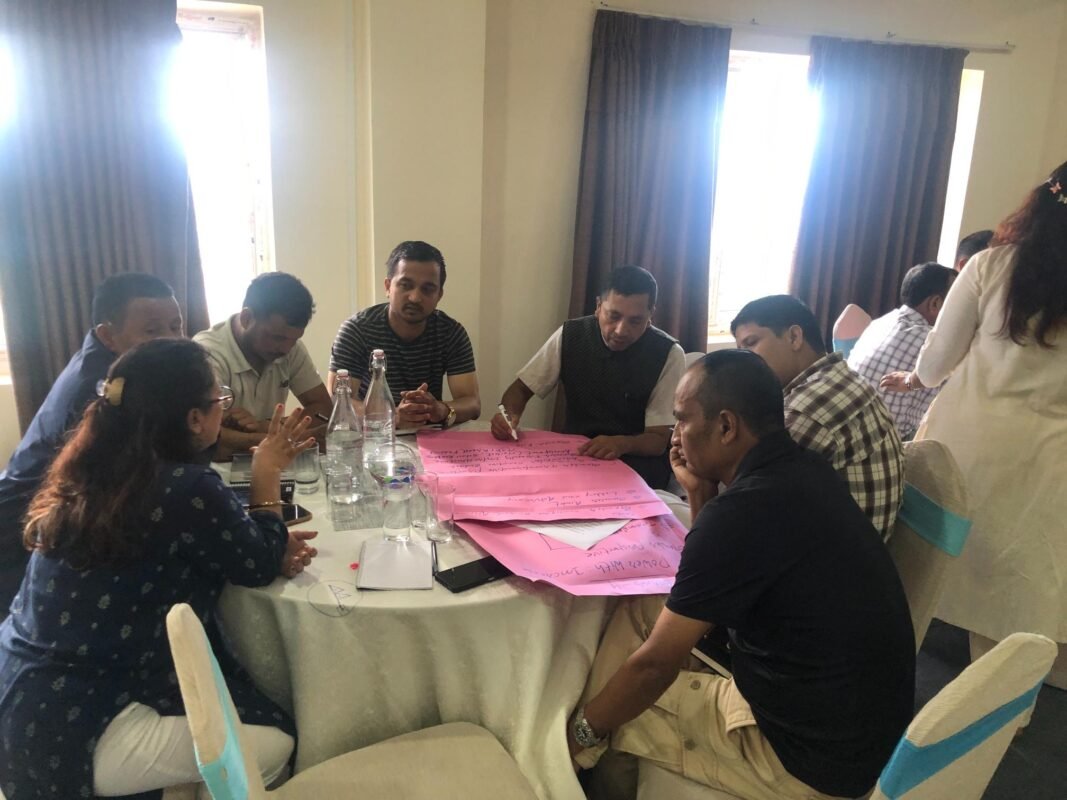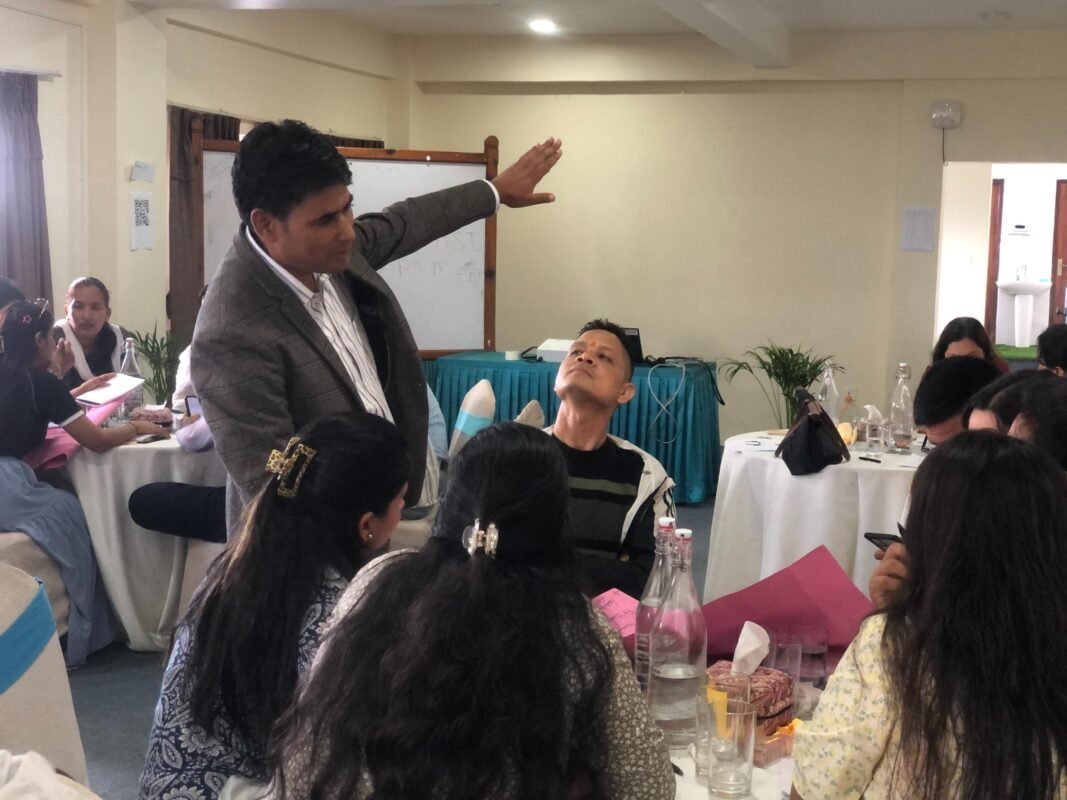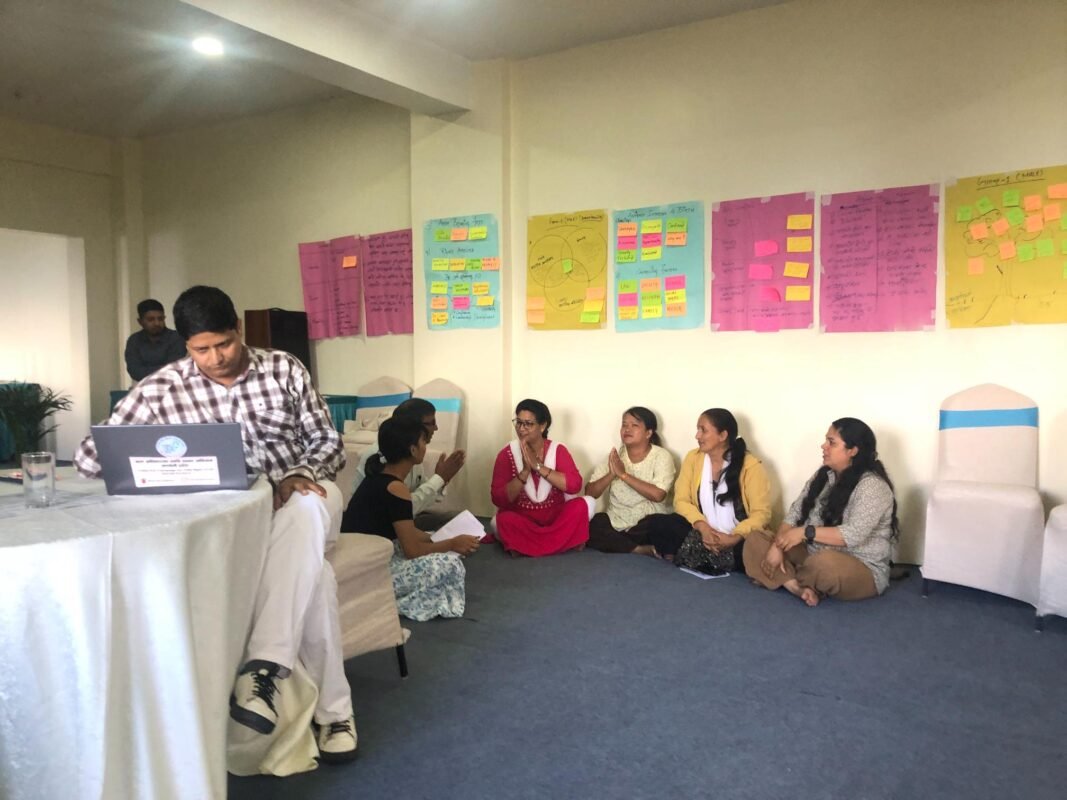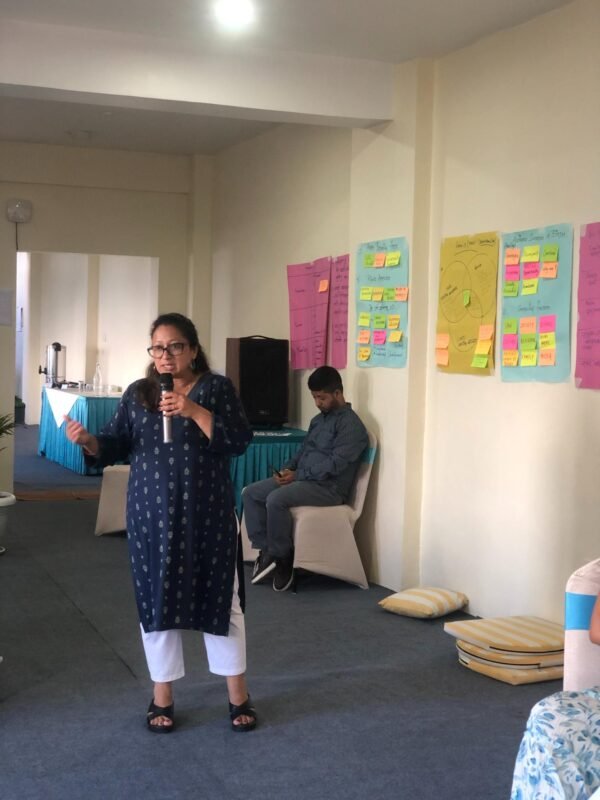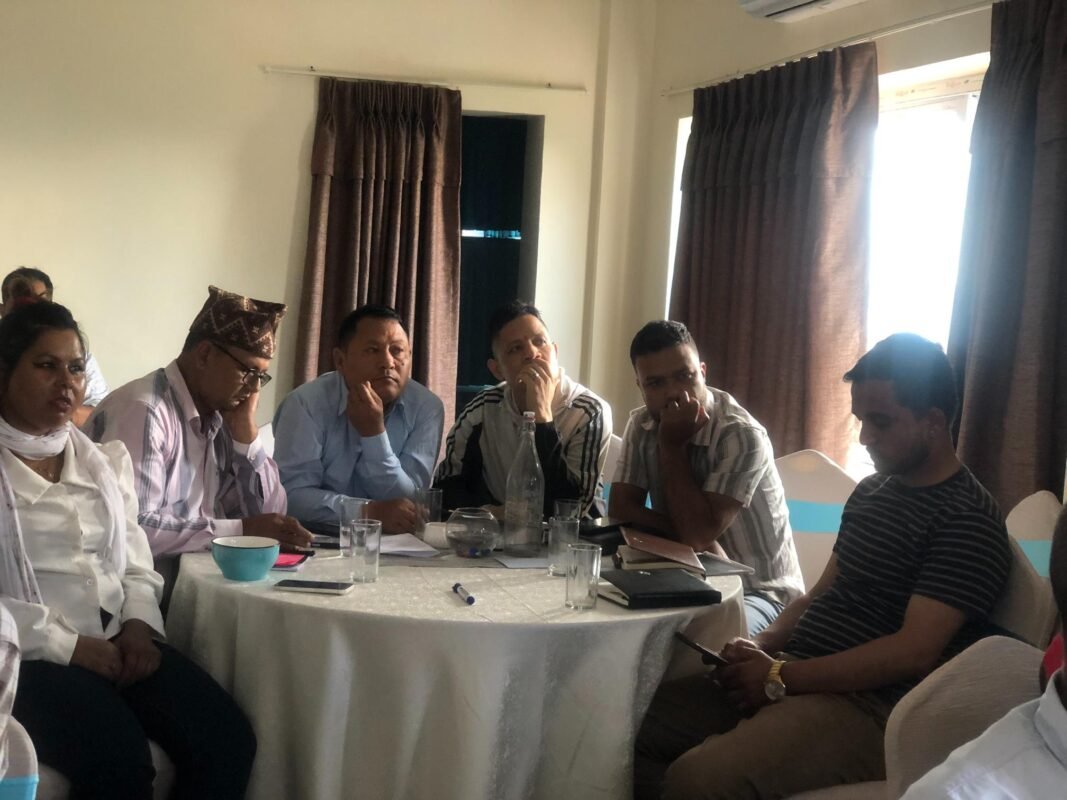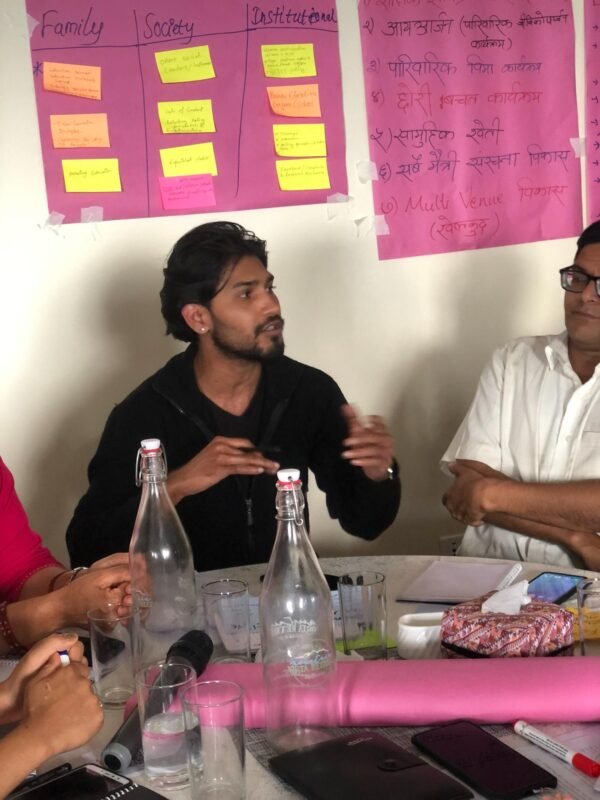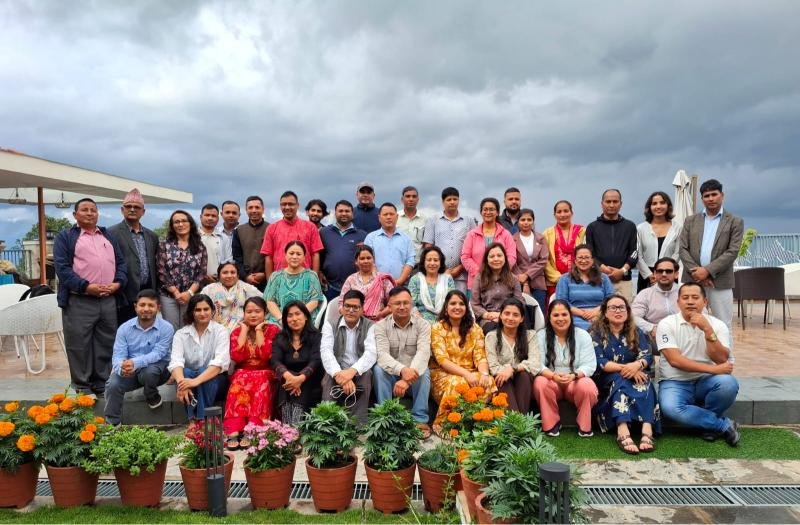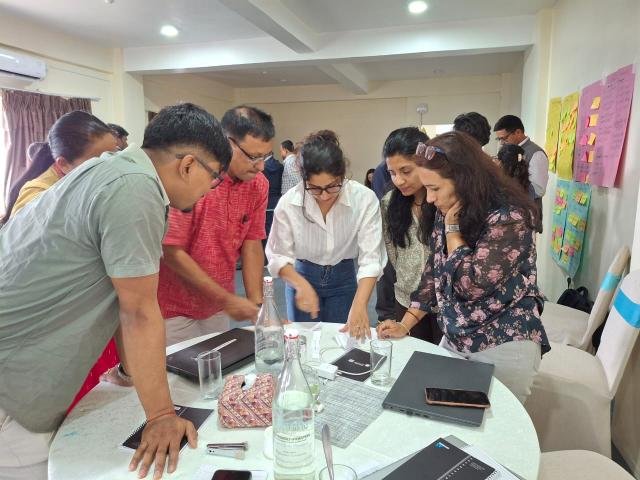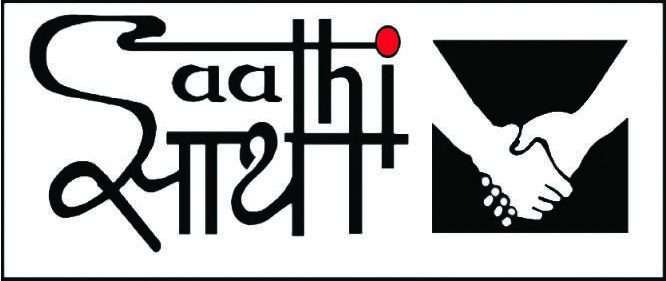June 23-24, Kathmandu: Under the SANKALP program, implemented with the support of Save the Children, Saathi organized a two-day Gender Realization Workshop for SANKALP consortium partners. The workshop was designed to help participants internalize gender issues through their own experiences, reflections, and personal examples, rather than approaching the subject purely from a theoretical perspective.
The workshop employed a range of participatory and experiential methodologies including reflective exercises, role plays, Theatre of the Oppressed, epiphany storytelling, and group discussions, creating a space for participants to uncover unconscious biases, question gender norms, and understand intersectional dynamics at individual, institutional, and societal levels.
Opening the workshop, Sajani Amatya, President of Saathi, welcomed the participants and emphasized that, “True transformation begins when we reflect on our own thoughts, behaviors, and perspectives through a lens of equality.”
Sunita Gurung, GESI Advisor at Save the Children, highlighted the organization’s commitment to gender equality, especially in its work with children. She stressed that: “All Save the Children programs must be at least gender-sensitive, and should ideally aim to transform discriminatory gender norms for sustainable change.”
Arjun Thapa, Senior Project Coordinator at Save the Children, played a key role in the workshop by offering critical feedback and reflective prompts that encouraged participants to deepen their understanding and personal realization of gender issues. His insights supported meaningful dialogue and helped participants challenge their own assumptions and biases.
Anjana Shrestha, Disability Inclusion Technical Specialist, delivered a focused presentation on mainstreaming disability inclusion across all programs of Save the Children. She emphasized the importance of adopting an intersectional lens, ensuring that the rights and needs of persons with disabilities—especially women and children—are integrated into program design, implementation, and evaluation.
Suvekchya Rana, Executive Director of Saathi, emphasized that media representation and character portrayals in dramas and films continue to reinforce traditional gender roles. Citing examples from popular fairy tales like Cinderella, she highlighted how girls are often depicted as demure princesses—dressed beautifully, passive, and waiting to be rescued by a heroic prince. In contrast, men are portrayed as brave saviors, reinforcing narrow ideas of masculinity and femininity.
She noted that such portrayals not only limit the aspirations of girls and boys but also normalize unequal power dynamics, encouraging girls to internalize submissiveness and boys to adopt dominant, emotion-suppressing behaviors. Rana stressed the urgent need to challenge and transform these stereotypes through gender-sensitive storytelling, inclusive media narratives, and educational content that promotes equality, diversity, and empowerment for all genders.
The workshop sessions were facilitated by Palita Thapa, GBV Program Manager at Saathi, Parikshya Lamichhane, Program Officer, and Santosh Pokharel, Portfolio Manager. The facilitation approach was rooted in feminist leadership principles, emphasizing inclusivity, shared power, and transformative learning. Core themes such as engaging men and boys in gender equality, and adopting a survivor-centric approach to gender-based violence (GBV) prevention, were central to the sessions.
A deliberate effort was made to deconstruct traditional power hierarchies between facilitators and participants by fostering an environment of co-learning and co-creation of knowledge. Rather than treating participants as passive recipients of information, the facilitators encouraged active participation, drawing from the lived experiences, reflections, and insights of all involved.
This approach contributed to a richer, more grounded understanding of gender norms and power dynamics, and supported the emergence of collective strategies for transformative action within their organizations and communities.
The workshop served as a validation platform for Saathi’s upcoming manual on the Gender Realization Training Model. The manual will document this innovative approach and serve as a practical guide for other organizations aiming to move beyond awareness to action.
A total of 42 participants from Madhesh, Bagmati, and Karnali provinces, representing various SANKALP partner organizations, actively engaged in the workshop. As a final outcome, each organization developed its own Gender Transformation Action Plan, guided by the socio-ecological model. These action plans aim to initiate gender-transformative change at multiple levels — individual, interpersonal, organizational, community, and policy — ensuring that gender equality becomes an integral part of their programming and internal practices.
This workshop is a significant step toward building a more gender-just society through self-realization, collective reflection, and structured action.
